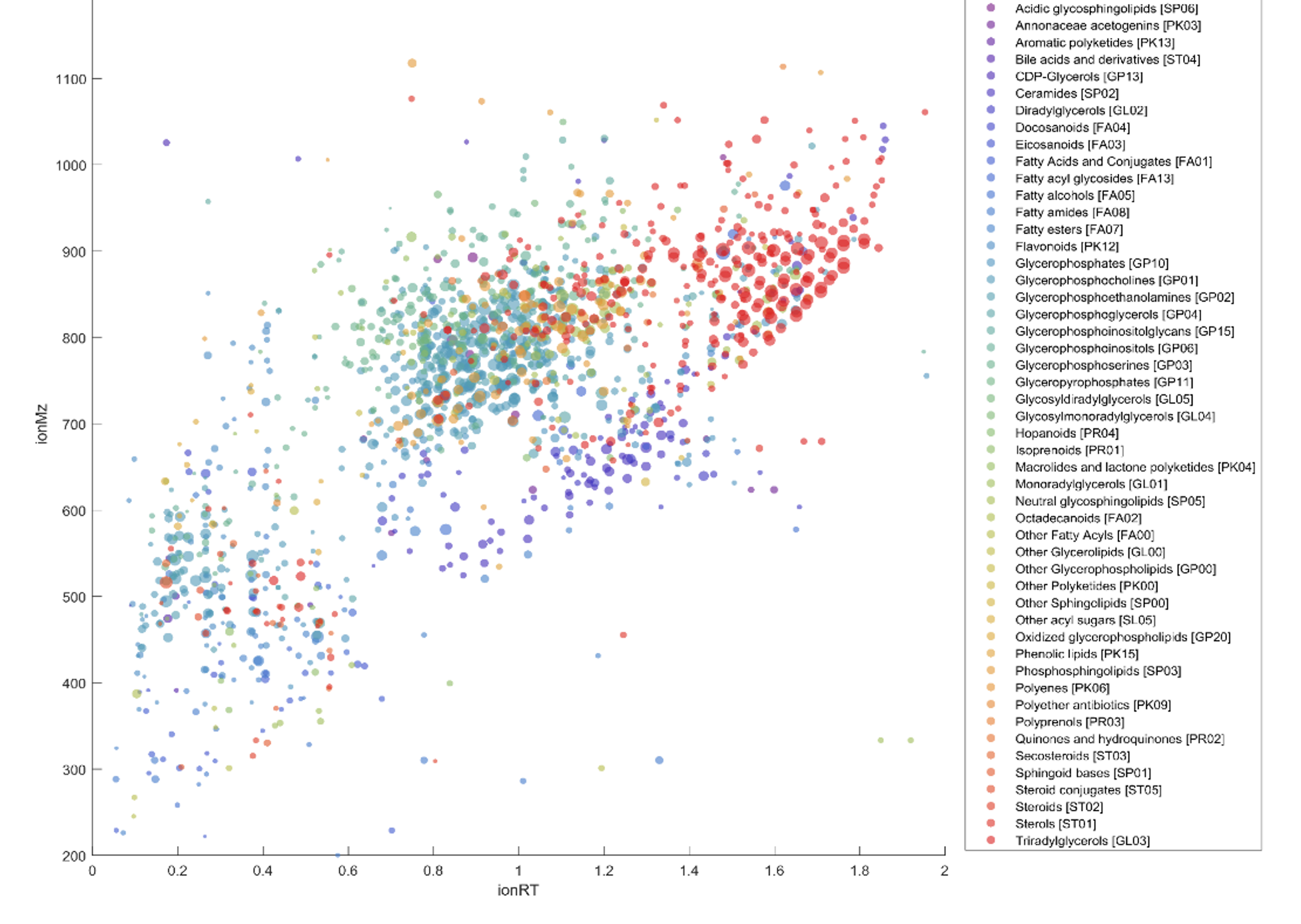Lipidomics
Method
In recent years, we have been developing innovative LC/MS workflows for untargeted and targeted lipidomics. In brief, we use reversed-phase liquid chromatography coupled to high-resolution mass spectrometry. The length of the each run can be as short as 2 minutes (500 samples/day), but longer runs might be necessary to resolve similar lipid species. The specifics are adjusted ad-hoc to optimized separation, throughput and coverage to each project's needs.
Using full scan and different fragmentation modes on Q-TOF (SCIEX ZenoTOF 7600) and Orbitrap (Thermo Orbitrap IQ-X) and instruments, we can identify few thousand lipid species on the MS1 level while several hundreds can usually be confirmed on the MS2 level within each experiments. In addition, the excellent reproducibility of LC allows to identify features based on internal libraries and previous studies.
The lab also adopts advanced fragmentation techniques like UVPD and EAD/EID for the elucidation of double bound position. This is not part of the standard services, but am option to be discussed.

Notes
- Depending on the sample type and amount, we can detect and semi-quantify the following classes:
- Acylcarnitines
- Fatty acids
- Lysophospholiipds (LPC, LPE, LPA, LPG and LPS and some of their ether counterparts)
- Glycerolipids (MAG, DAG and TAG)
- Phosphoglycerolipids (PC, PE, their ether forms and PA, PG, PS, and cardiolipins)
- Sphingolipids ( Sphingoid bases, dihydroceramides, ceramides, and their deoxy forms, sphingomyelins and different classes of glycosphingolipids such as mono- di- and tri- hexosyl-ceramides and gangliosides)
- The readouts are semi-quantitative, i.e. provide relative changes of each detectable compound across the study. By default, we also add internal standards for each lipid class.
- Sample preparation is done by us using high-throughput liquid handling stations (Hamilton Star and Agilent Bravo). Supported procedures include the standard MMC, MTBE, and BUME protocols as well as in-house modifications. Tissue homogenization is available (Precellys evolution).
Sample types
- Plasma
- Preferably EDTA but also other anti-coagulants ( e.g., Citrate or Heparin) can be used
- Requirements: 20 µl needed, 100 µl preferred
- Sample preparation: done by us
- Serum
- Requirements: 20 µl needed, 100 µl preferred
- Sample preparation: done by us
- Cerebrospinal fluid
- Requirements: 50 µl needed
- Sample preparation: done by us
- Tissues and biopsies
- Requirements: 10 mg wet weight needed
- Sample preparation: done by us
- Requirements: 10 mg wet weight needed
- Tissue cultures:
- Requirements: 50,000 cells needed, 1 Mio preferred.
- Sample preparation: done by us
- Lower organisms (bacteria, yeasts)
- Requirements: 1 OD*mL (frozen pellet) preferred
- Sample preparation: done by us
- C. elegans, Drosophila, Zebrafish, ...
- Contact us
- Contact us